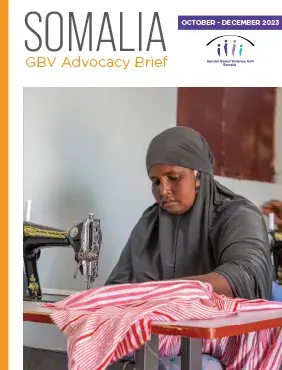During the last quarter of 2023, Somalia witnessed a life time El Niño event that resulted in unprecedented deluge in many parts of Somalia, plunging the country into a myriad of challenges that are exacerbated by the severe drought earlier in the year and the chronic ongoing conflict. The impact of these floods is multifaceted, affecting various aspects of life in Somalia, including infrastructure, agriculture, displacement, and conflict dynamics. The floods severely damaged infrastructure such as roads, bridges, and buildings, hindering access to essential services and disrupting transportation routes hindering the delivery of humanitarian aid and services, thereby worsening the already dire situation for affected communities especially in areas like Luuq, Beletwayne and Baidoa. In rural areas, the flooding destroyed agricultural land, crops, and livestock, leading to food shortages and loss of livelihoods. According to the Integrated Food Security Phase Classifications (IPC), from October to December 2023, 4.3 million people were expected to face crisis or worse food insecurity outcomes (IPC Phase 3 and above) including over 1 million who are likely to face emergency (IPC Phase 4). The corresponding figure for IPC 3 and above in the previous quarter was 3.7 million. The increase is due to a combination of factors, including the adverse impacts of El-Nino related heavy rains and flooding and anticipated decline in the level of humanitarian assistance because of funding constraints. About 700,000 women and girls are estimated to suffer from lack of access to protective shelter and adequate specialized services for GBV
Moreover, the displacement of people due to flooding compounded existing challenges associated with conflicts, internal displacements and tensions within communities in Somalia. Families were forced to flee their homes to seek refuge in makeshift shelters or overcrowded displacement camps, where they face inadequate living conditions, lack of clean water, and heightened health risks, enhanced protection risks that includes GBV, spread of waterborne diseases such as cholera and malaria According to the Protection & Return Monitoring Network (PRMN), 1.39 million people were displaced in Somalia during the quarter with 1.18 million in November 2023 alone, More than 80% of the displacements in the quarter were attributed to the unprecedented El Nino floodings. More than 65% of the people displaced were estimated to be women and girls.
Furthermore, the floods disrupted access to essential services such as healthcare and education, exacerbating the already fragile state of Somalia's public infrastructure. The inundation of health facilities and schools disrupted essential services, leaving communities vulnerable to disease outbreaks and depriving children of education.
The GBVIMS report for the fourth quarter recorded 2544 new GBV cases in the country that includes 495 incidents of sexual violence. It was also noted 50% of the reported incidents are physical assault followed by 12% of rape. As per the case context, 50% accounted for intimate partner violence. It was also observed that as a result of the floods related displacement and destruction of school facilities many girls were subjected to forceful marriage by their parents with the aim of gaining economic support inform of dowry to cater for their basic needs in these critical times. Women and adolescent girls, women from minority clans, female headed households and women living with disabilities are the most marginalized people in Somalia, and currently most affected by the natural disaster.
During the fourth quarter of 2023, The GBV AoR partners reached 242,017 persons (108,729 Women, 31,795 Men, 61,722 Girls and 39,771 Boys) with GBV prevention, response, and capacity building services.


